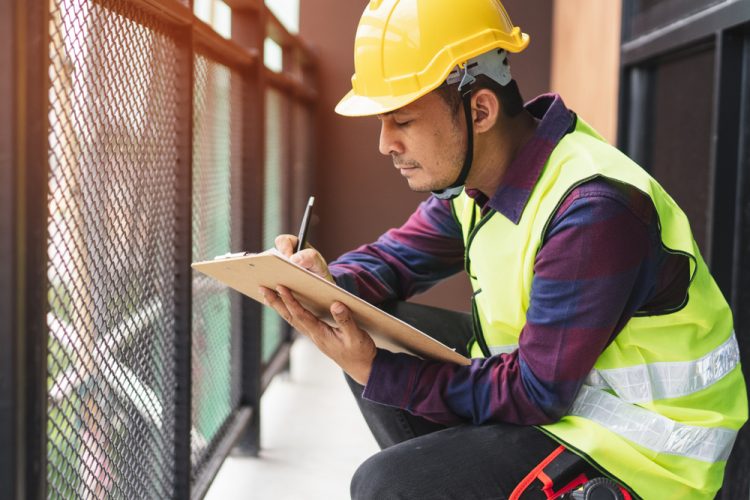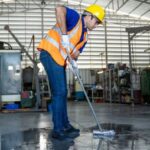So you’ve got yourself a coworking space.
Nice! But let me tell you something that too many owners forget until it’s too late: staying on top of your building maintenance isn’t just some optional extra—it’s what keeps your business running and your members happy.
I’ve seen plenty of beautiful coworking spaces turn into nightmare situations because nobody paid attention to the basics.
Trust me, nothing sends members running faster than spotty WiFi, broken bathrooms, or that one conference room that’s always freezing cold.
In such cases, its just very much important to look into everything possible. For example, a Commercial gutter installation can protect your roofline and prevents water from seeping into your foundation. Keeping your cowork space safe and secured.
Let’s walk through the 10 things you absolutely need to stay on top of to keep your coworking space in tip-top shape.
This isn’t complicated stuff, but it does need your attention.
Electrical Systems Inspection
You know what’s crazy? So many coworking space owners never check their electrical fixes until something goes wrong.
Bad move! Electricity problems can shut down your whole operation in seconds.
What you want to do is get a qualified electrician in there at least once a year to check everything out.
They’ll look at your outlets, breaker boxes, and wiring to make sure nothing’s overloaded or creating a fire risk.
This is super important in older homes where the electrical wasn’t designed for 50 people all plugging in laptops and phones at once.
Between those professional checks, keep an eye out for warning signs: flickering lights, buzzing sounds from outlets, breakers that trip regularly, or those outlets that feel hot to the touch.
Any of those pop up? Call someone right away.
Also, don’t forget to test all your GFCIs monthly—those are the special outlets with the little test buttons, usually in kitchens and bathrooms.
A quick press of the button tells you if they’re working properly.
Plumbing and Water Supply
Nothing—and I mean nothing—will clear out a coworking space faster than simple plumbing problems.
One backed-up toilet can ruin everyone’s day.
The smart move is to check all your faucets, toilets, and water connections monthly.
Look for drips, leaks, or toilets that keep running after flushing.
Fix small issues before they turn into floods.
Your water heater needs love too.
Make sure it’s set at the right temperature (usually around 120°F) and flush it yearly to remove sediment buildup.
That’ll help it last longer and work better.
Don’t forget about the outside of your building either.
HVAC and Air Quality
Temperature complaints are probably the number one thing coworking owners hear about.
“It’s too hot.” “It’s too cold.” “It’s stuffy in here.”
Your HVAC system needs regular attention.
Change those water filters every 1-3 months depending on how much dust you get.
Dirty filters make your system work harder and clean the air less effectively.
Get a professional twice a year—spring and fall work best—to check refrigerant levels, clean coils, and make sure everything’s running right.
This might seem expensive, but it’s way cheaper than emergency repairs when the AC dies during a heatwave.
And don’t just think about temperature. Air quality matters too.
Consider getting some air purifiers for common areas, and maybe add some plants around the space.
They look nice and help clean the air naturally.
Fire Safety Systems
This one isn’t just about maintenance—it’s about keeping people alive and staying legal.
Fire safety is serious business.
First, your sprinkler system should be inspected by professionals yearly.
Monthly, you should visually check that sprinkler heads aren’t blocked or damaged.
Fire extinguishers need monthly visual checks (make sure they’re fully charged) and professional inspection once a year.
Mark the inspection dates right on the tag.
Test smoke and carbon monoxide detectors monthly by pressing the test button.
Replace batteries twice a year.
I like to do it when the time changes—spring forward, fall back, change your batteries.
And don’t just have safety equipment—have a plan. Make sure exit signs are working, emergency lights function during power outages, and everyone knows how to get out in case of fire.
Run a fire drill occasionally so your team knows what to do.
Internet and IT Infrastructure
For coworking spaces, the internet isn’t a luxury—it’s the whole ballgame.
Your members are paying you so they can work, and most work happens online.
Test your speeds regularly using sites like Speedtest.net.
Do it at different times of day, especially when your space is full.
If speeds drop during busy periods, you might need to upgrade.
Your WiFi access points and routers need occasional reboots—set up a schedule to do this during off-hours. And check your coverage with a WiFi analyzer app to find dead spots that need attention.
Have backup internet. Seriously.
A second connection from a different provider might seem expensive, but one day when your main line goes down, it’ll pay for itself by keeping your members working instead of leaving in frustration.
Replace network equipment like routers and switches every 3-5 years.
Technology moves fast, and older equipment slows down and becomes less secure over time.
Security Systems
Security matters big time in coworking.
Your members are trusting you with their equipment, their work, and their safety.
Check door locks, access card readers, and security cameras monthly.
Make sure nothing’s loose, damaged, or malfunctioning.
Test your alarm system regularly too.
Update access codes and review member access permissions quarterly.
When people leave your space, make sure their access is removed promptly.
Camera systems need occasional maintenance too.
Clean the lenses, check the recording equipment, and make sure your storage space hasn’t filled up.
Nothing worse than needing footage and finding out your system stopped recording weeks ago.
Don’t forget cybersecurity! Change WiFi passwords regularly, keep your router firmware updated, and consider setting up separate networks for staff, members, and guests.
Lighting and Fixtures
Good lighting makes a huge difference in how people feel in your space.
Bad lighting gives people headaches and makes them cranky.
Check for burned-out bulbs weekly and replace them right away.
One dark corner can make your whole space feel neglected.
Clean light fixtures quarterly—dust buildup can reduce brightness by up to 30%.
Look into LED upgrades if you haven’t already.
They last longer, use less energy, and give you more options for color temperature.
The upfront cost pays off pretty quick in energy savings.
Consider adding lighting controls like dimmers or motion sensors in appropriate areas.
They save energy and give your members more control over their environment.
Cleaning and Sanitation
Cleaning isn’t glamorous, but it’s essential—especially since COVID changed everyone’s expectations.
High-touch surfaces need daily attention: doorknobs, light switches, coffee machine buttons, bathroom fixtures, you name it.
Make a checklist so nothing gets missed.
Develop different cleaning schedules: daily quick cleans, weekly deeper cleans, and monthly intense cleans for things like carpets, upholstery, and hard-to-reach areas.
Don’t forget about your kitchen.
Clean the fridge weekly and toss abandoned food.
Descale coffee machines monthly.
Clean the microwave daily—that thing gets gross fast in shared spaces.
Make it easy for your members to help.
Put disinfectant wipes near shared equipment and gentle reminders about cleaning up after themselves.
Most people will do their part if you make it simple.
Structural Integrity and Safety Checks
The building itself needs regular once-overs to catch problems early.
Walk through your entire space monthly looking specifically for issues.
Check for water stains on ceilings or walls—they point to leaks that need fixing before they cause bigger problems.
Look for cracks in walls, especially ones that seem to be growing.
Inspect your flooring expert for trip hazards like loose carpet, uneven transitions, or damaged tiles. Someone falling in your space is bad news all around.
Seasonally, look at different aspects: roof condition before rainy seasons, heating systems before winter, cooling systems before summer, and storm preparedness before your local severe weather season.
Furniture and Equipment Maintenance
Your furniture takes a beating in a coworking space.
Way more use than in a typical office.
Check for wobbly chairs, loose screws, and unstable tables monthly.
Tighten everything up before small issues become furniture failures.
Clean upholstery regularly—spot clean stains immediately and do deeper cleaning hacks quarterly.
Fabric holds onto odors and dirt that members notice even if you don’t.
Office equipment like printers and copiers need regular maintenance too.
Follow manufacturer recommendations and keep supplies stocked.
Nothing frustrates members more than a printer that’s always broken or out of toner.
Listen to your members’ feedback about furniture comfort and functionality.
They’re using this stuff every day, so they notice issues first.
Take their input seriously—it’s free quality control.
Keeping It All Together
This might look like a ton of stuff to keep track of, but honestly, most of it becomes second nature once you build it into your routine.
The trick is setting up systems so things don’t fall through the cracks.
Create a maintenance calendar with daily, weekly, monthly, and annual tasks.
Assign clear responsibility for each item. Use a simple checklist app to track what’s been done.
The payoff is huge: fewer emergencies, lower repair costs, happier members, and a space that stays looking great year after year.
Plus, well-maintained buildings hold their value better if you ever decide to sell or expand.
Remember that your members might not notice when everything’s working perfectly—but they definitely notice when it’s not.
Good maintenance is like good health: you appreciate it most when you don’t have to think about it.
Now get out there and show that building some love! Your future self will thank you.



